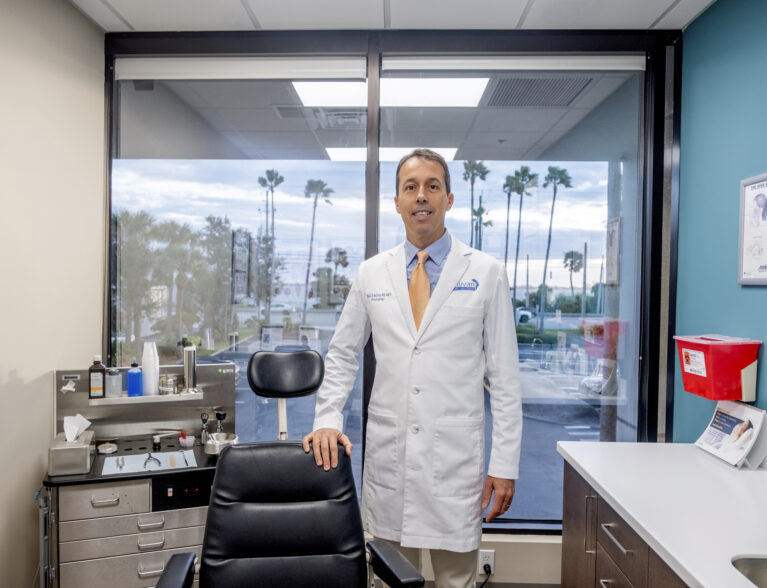
Are there special smells that always bring you joy? When you smell certain things, such as the perfume your mother wore or the wafting scent of your favorite meal, they can bring up pleasant recollections, referred to as odor-linked memories.
Dr. Daniel P. Sullivan, a fellow of the American College of Surgeons, explains that the sense of smell is important for many more reasons than just pleasant trips down Memory Lane.
The olfactory system, the part of the body that serves the sense of smell, has many important functions. It helps people determine what to eat, influences taste and affects socialization, he says.
“Smell also provides a warning for hazardous events such as fires or gas leaks or burning food,” he adds.
A lot has been written about the connection between losing your sense of smell and dementia. The University of Chicago newsletter states that it’s estimated more than 6 million Americans have Alzheimer’s disease, which is characterized by memory loss and other symptoms such as mood changes and trouble completing everyday tasks.
The newsletter goes on to say that memory plays a critical role in our ability to recognize smells, and researchers have long known of a link between the sense of smell and dementia. The plaques and neural tangles that characterize tissue affected by Alzheimer’s disease often appear in olfactory and memory-associated areas before developing in other parts of the brain. It’s still unknown if this damage actually causes the decline in a person’s sense of smell, or if a loss of the sense contributes to mental decline.
But Dr. Sullivan wants to make one thing clear: “Just because your sense of smell is diminishing, it doesn’t mean that you have dementia or Alzheimer’s disease.
“I see patients regularly who are experiencing loss of sense of smell who have excellent neuro-cognitive function. Allergies, after-effects of COVID, nasal polyps, sinus infections, smoking and vaping are all common causes of the condition.”
But losing your sense of smell can cause other problems. Dr. Nicholas Rowan, associate professor of otolaryngology/head and neck surgery at Johns Hopkins University, says common consequences of smell loss include a loss of appetite, difficulty monitoring personal hygiene, depression and an inability to detect toxic fumes. In older adults, this may be associated with weight loss, malnutrition, weakness, inadequate personal care, and even potential injuries caused by gas leaks or fires.
The good news is that olfactory retraining can help nearly everyone improve their sense of smell.
Olfactory training is a non-pharmacological and non-surgical treatment option for patients with olfactory dysfunction.
Dr. Sullivan explains how it works. “Smell retraining therapy is simply a matter of sniffing a wide variety of odor-generating elements. Six to 10 different types of scents are used, such as lemons or oranges, flowery perfumes, peanut butter, eucalyptus, rosemary, cinnamon, pine, peppermint or cloves.
“Once or twice a day, for about four weeks, smell each scent for 30 seconds to two minutes. As you do, think about what you’re smelling, and try to recall moments when you’ve smelled this before. For example, cut open an orange, inhale its aroma, and think about another time when you savored a fresh, delicious orange.”
Harvard Medical School’s newsletter states that thinking while sniffing triggers odor particle recognition. It’s deeply seated in the brain, but you have to stimulate it to re-establish function.
In simple terms, you are retraining the brain.
You can use materials that you have at home or buy a smell retraining kit online.
Dr. Sullivan explained that most people don’t recognize their sense of smell is diminishing.
“People are not great at assessing their own abilities – it is that way with the other senses, as well.
“But whereas there are vision and hearing tests readily available, most testing of the sense of smell is done in research centers.
“If you choose to get a medical diagnosis, many insurance plans won’t let you see an ENT without a referral from your primary care doctor.
“A camera will be inserted up your nose to determine if you have polyps or a sinus infection.
Often, something like Flonase will be prescribed, which will clear up most common causes.
Prescription meds like oral steroids may be tried. A CAT scan of your sinuses can be taken – if necessary – after a nasal endoscopy.
“We’ll determine what is affecting your sense of smell and treat it accordingly.”
Daniel P. Sullivan, M.D., FACS, practices at Sullivan Sinus & Allergy in Melbourne. He has a B.A. in English and B.S. in biology from Stanford University, an M.D. degree from Duke University, and he completed an internship in General Surgery and Residency in Otolaryngology and Head and Neck Surgery at NYU Langone Medical Center. Sullivan Sinus & Allergy is located at 930 S Harbor City Blvd., Suite 200, Melbourne. You can call 321-674-9094 for an appointment.



